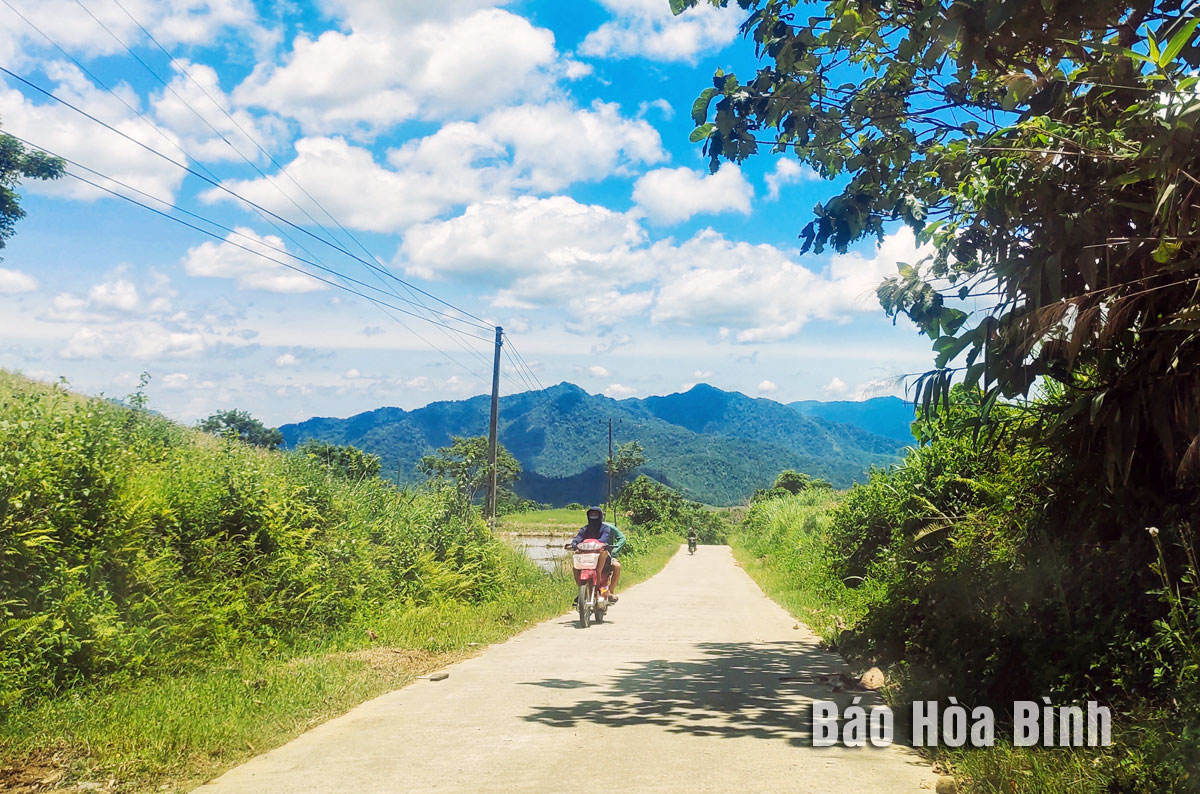



From the program of building the new rural area, the rural transport infrastructure in Cao Son commune (Da Bac) has been increasingly synchronously invested.
As a mountainous district with many difficulties and a low starting point, building new rural areas in the communes of the district still faces many difficulties and challenges. Up till now, Da Bac has only 4 communes recognized to meet the rural standards. They are Hien Luong, Tu Ly, Cao Son and Toan Son. However, after more than 10 years of building the new rural area, the appearance of this highland district has changed significantly. In particular, the essential infrastructure is increasingly invested synchronously.
From the program of building the new rural area, the intra-village and inter-village roads in Cao Son commune have been hardened. The convenient roads have promoted the economic restructuring and raised the people's incomes. In Sung hamlet, the roads to the hamlet were difficult and winding in the forest canopy in the past. Now, the roads have been hardened, contributing to helping the village become a community tourism attraction. Mr. Ly Van Henh, an elderly person in the hamlet, says: In the past, the lives of the people in Sung hamlet were poor and they could only rely on the forest. With the attention of the Party and State, especially since implementing the program of building the New Rural Area, the roads were smoothy, helping Sung hamlet escape poverty. Developing community tourism helps the people improve their income. Currently, the people continue building new rural areas through improving the landscape and environment to attract tourists.
Mr. Bui Khac Vinh, the Head of the Department of Agriculture and Rural Development of Da Bac district, says: The investement in Infrastructure is an important solution to create a breakthrough in building the district’s new rural areas. In order to ensure water sources for agricultural production, every year, the district allocates the funds to maintain, upgrade and repair irrigation works. Currently, in the whole district there are 273 projects, all of the communes have met the irrigation criteria. The system of the power grid in the area also meets the prescribed standards, with the rate of households using electricity reaching 99.9%. In particular, the district has been focusing the resources on investing and upgrading roads.
In addition to investing in the inter-village road system, Da Bac district is implementing many important transportation projects. In the entire district there are 1,316 km of roads with a hardening rate of 83%, including 163.5 km of the district roads; 128.7 km of the communal roads; more than 453 km of the village and hamlet roads; 305 km of the alley roads; 231 km of the production and inner-field roads; 34.18 km of the urban roads. Since the beginning of the year, Da Bac has continued completing the transitional projects and starting the construction on rural roads according to the capital plan in 2023. So far, 8 out of the 16 communes have met the traffic criteria. The total number of criteria achieved in the whole district is 201 criteria, an average of 12.56 criteria each commune.
From now until the end of the year, Da Bac district is trying to maintain 4 communes meeting the standards of the new rural areas; the remaining communes each meets 1 - 2 criteria or more; 2 more sample gardens have been recognized and 2 more OCOP products will be standardized. To achieve those goals, Mr. Bui Khac Vinh, the Head of the Department of Agriculture and Rural Development of Da Bac district, says: The district continues guiding and directing the communes to review the criteria according to the Criterion set of the new rural communes and advanced rural communes. At the same time, they will support the farmers to develop production and product consumption in association with the implementation of the Program of building new rural areas and OCOP. Itiss necessary to pay attention to investment, development of the socio-economic infrastructure, production development associated with restructuring the agriculture sector, restructuring the rural economy. It is also important to diversify the mobilization and effective use of the resources to fulfill the criteria for building new rural areas.